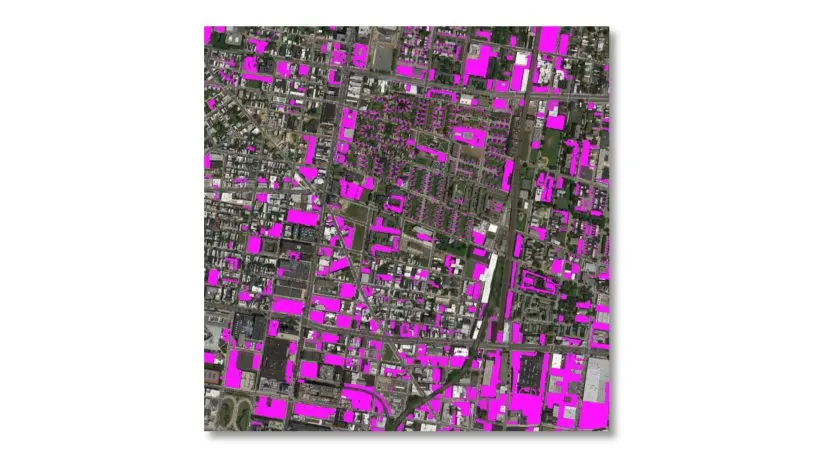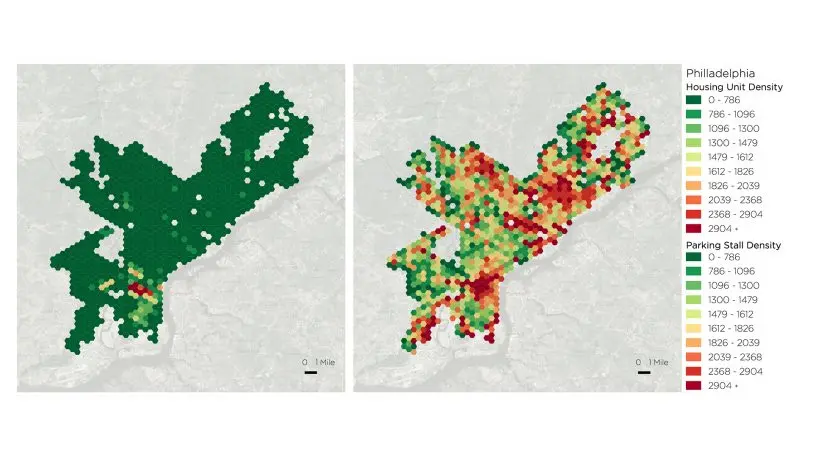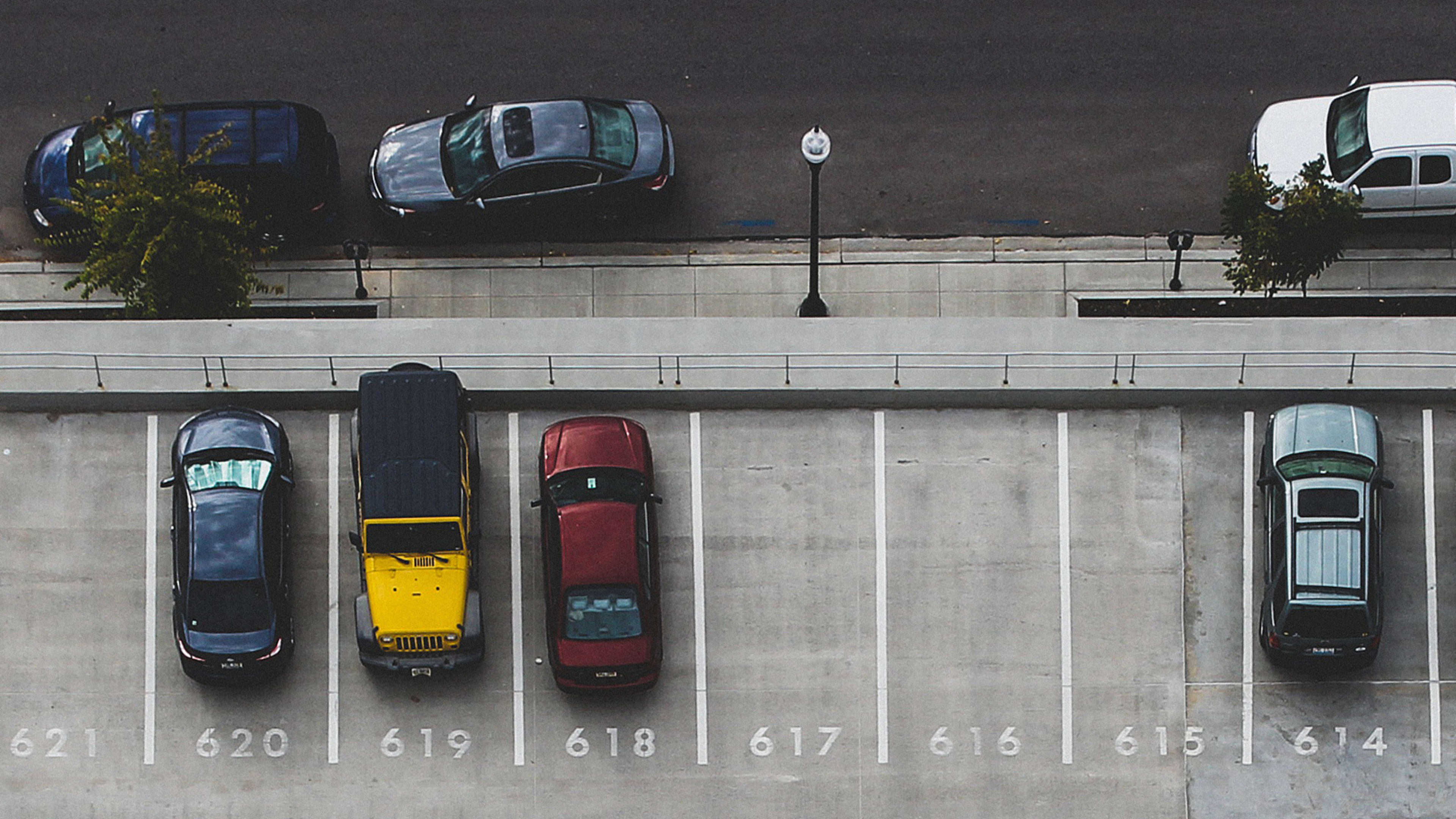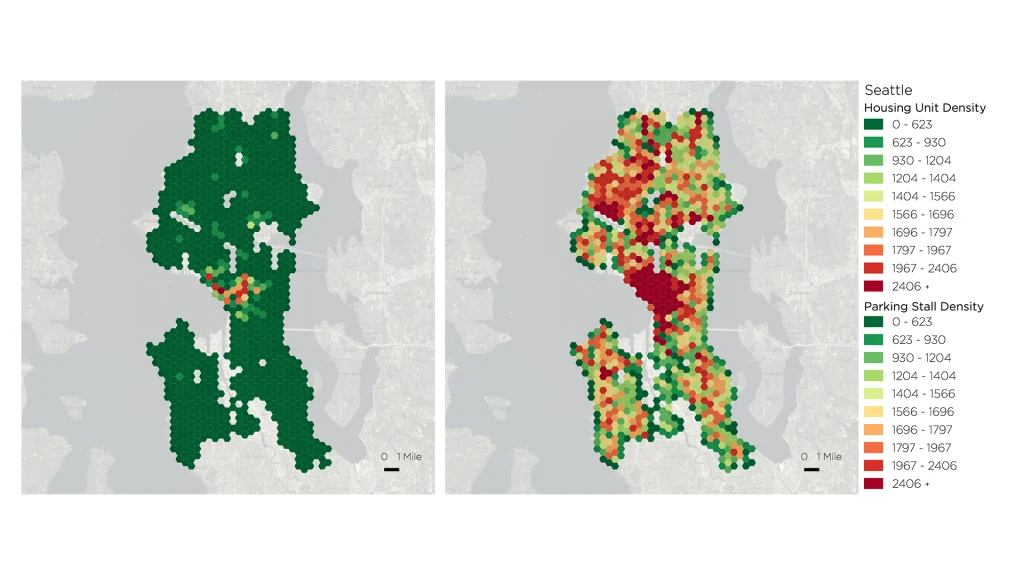In Seattle, there are around 1.6 million parking spaces–more than five for every household in the city. Des Moines, a much smaller city, also has roughly 1.6 million parking spaces, or 19.4 per household. The small town of Jackson, Wyoming, has 27.1 parking spots per household.
A new report calculates, for the first time, exactly how many parking spots are in five cities–New York, Philadelphia, Seattle, Des Moines, and Jackson–and gives a sense of how much money and land is being wasted on car storage. It’s data that cities don’t have now, because it’s hard to gather a comprehensive list of spots–not only the ones on streets but in garages and on private land. The report analyzes satellite data to identify some parking spots, pulls on-street parking statistics from city records, and finds other off-street parking in parcel data. The basic finding: Cities have far more parking spaces than they need.

If some drivers still have the perception that there isn’t enough parking, that’s likely because parking is underpriced or free, says Eric Scharnhorst, a principal data scientist at the startup Parkingmill, who wrote the report for the Research Institute for Housing America, an arm of the Mortgage Bankers Association.

“A lot of times, I’m guilty of this too: If I’m looking for a parking space and I know the on-street stuff is provided for free, or it’s less expensive per hour to park on the street than on the adjacent lot or garage, I’ll circle the street to try to get a deal, even though I know there’s an open spot in the garage or in the parking lot,” he says. “That also influences traffic–there’s more than one person circling the block looking for a deal.”
Parking garages are typically underused–one garage in downtown Des Moines was 92% empty in the middle of the day–but cities spend millions to build the structures. The report estimates that among the five cities analyzed here, parking was worth roughly $81 billion. In Jackson, Wyoming, the estimated cost of parking for each household was $192,138.
City planners are beginning to recognize the problem. “I think there’s a lot of inertia in the system, in the personnel who write the rules for cities, but I’ve seen that starting to change,” says Scharnhorst. “The generation [of planners] coming up is aware of this. A lot of them want to live close to work so that they don’t even have to park anywhere, they can just get there another way.”
Hartford, Connecticut, has completely eliminated parking minimums, the rules that say any developers need to include a certain amount of parking with any new building. Minneapolis, Nashville, Kansas City, and dozens of others have eliminated parking minimums in at least one neighborhood. In Seattle, the city council passed a bill in April that reduces parking requirements for developers to build affordable housing and “unbundles” parking from leases in new developments so renters and buyers don’t have to pay for spaces that they don’t actually use. “Decoupling the cost is a really clean, market-driven, enlightened way to reduce the cost of all housing,” says Scharnhorst.
Americans have been driving less over the last decade, especially in cities, and as ride-hailing increases–and eventually self-driving cars–even fewer people will own cars. The vast urban area now devoted to car storage could be put to higher use. In Seattle, which is in dire need of new affordable housing, 40% of the land area is currently used for parking.
“It’s no secret in the development world that parking lots are just land banks just waiting to be turned into something else,” Scharnhorst says.
Recognize your brand’s excellence by applying to this year’s Brands That Matter Awards before the early-rate deadline, May 3.




